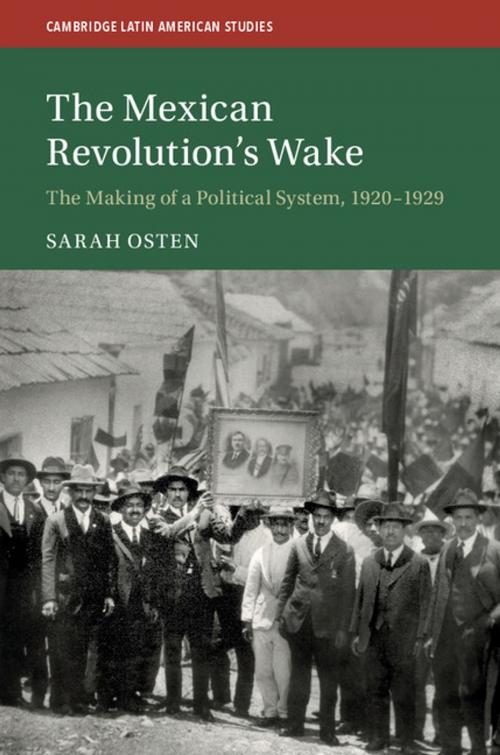The Mexican Revolution's Wake
The Making of a Political System, 1920–1929
Nonfiction, History, Americas, Latin America, Social & Cultural Studies, Social Science| Author: | Sarah Osten | ISBN: | 9781108245081 |
| Publisher: | Cambridge University Press | Publication: | February 22, 2018 |
| Imprint: | Cambridge University Press | Language: | English |
| Author: | Sarah Osten |
| ISBN: | 9781108245081 |
| Publisher: | Cambridge University Press |
| Publication: | February 22, 2018 |
| Imprint: | Cambridge University Press |
| Language: | English |
Throughout the 1920s Mexico was rocked by attempted coups, assassinations, and popular revolts. Yet by the mid-1930s, the country boasted one of the most stable and durable political systems in Latin America. In the first book on party formation conducted at the regional level after the Mexican Revolution, Sarah Osten examines processes of political and social change that eventually gave rise to the Institutional Revolutionary Party (PRI), which dominated Mexico's politics for the rest of the twentieth century. In analyzing the history of socialist parties in the southeastern states of Campeche, Chiapas, Tabasco, and Yucatán, Osten demonstrates that these 'laboratories of revolution' constituted a highly influential testing ground for new political traditions and institutional structures. The Mexican Revolution's Wake shows how the southeastern socialists provided a blueprint for a new kind of party that struck calculated balances between the objectives of elite and popular forces, and between centralized authority and local autonomy.
Throughout the 1920s Mexico was rocked by attempted coups, assassinations, and popular revolts. Yet by the mid-1930s, the country boasted one of the most stable and durable political systems in Latin America. In the first book on party formation conducted at the regional level after the Mexican Revolution, Sarah Osten examines processes of political and social change that eventually gave rise to the Institutional Revolutionary Party (PRI), which dominated Mexico's politics for the rest of the twentieth century. In analyzing the history of socialist parties in the southeastern states of Campeche, Chiapas, Tabasco, and Yucatán, Osten demonstrates that these 'laboratories of revolution' constituted a highly influential testing ground for new political traditions and institutional structures. The Mexican Revolution's Wake shows how the southeastern socialists provided a blueprint for a new kind of party that struck calculated balances between the objectives of elite and popular forces, and between centralized authority and local autonomy.















